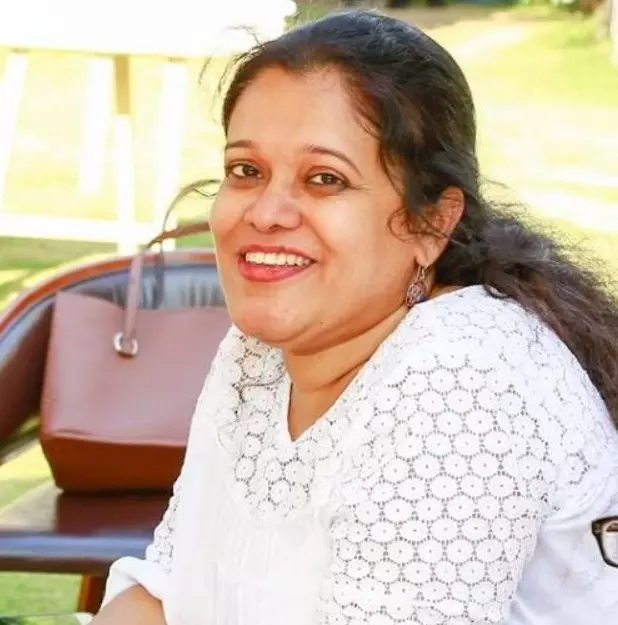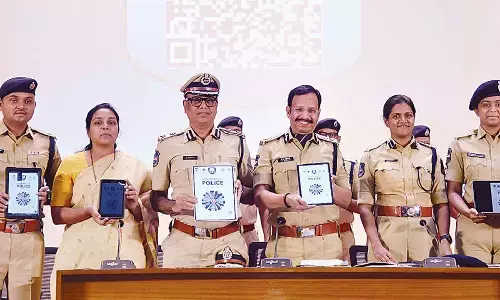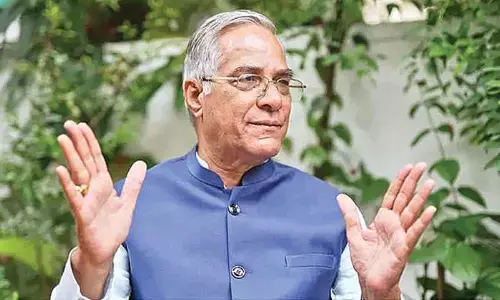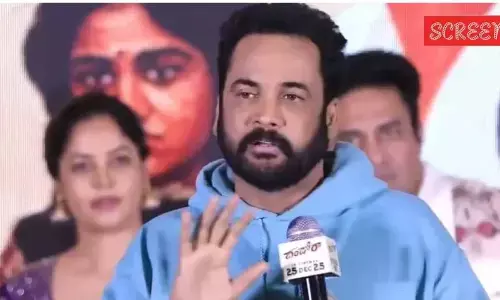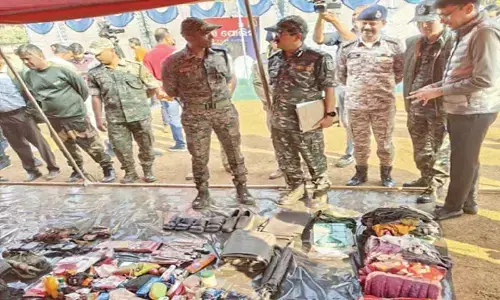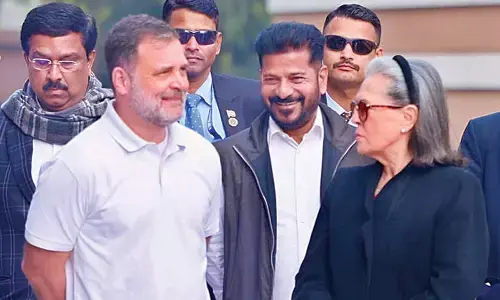'Hamidabai ki Kothi', now a teleplay on OTT
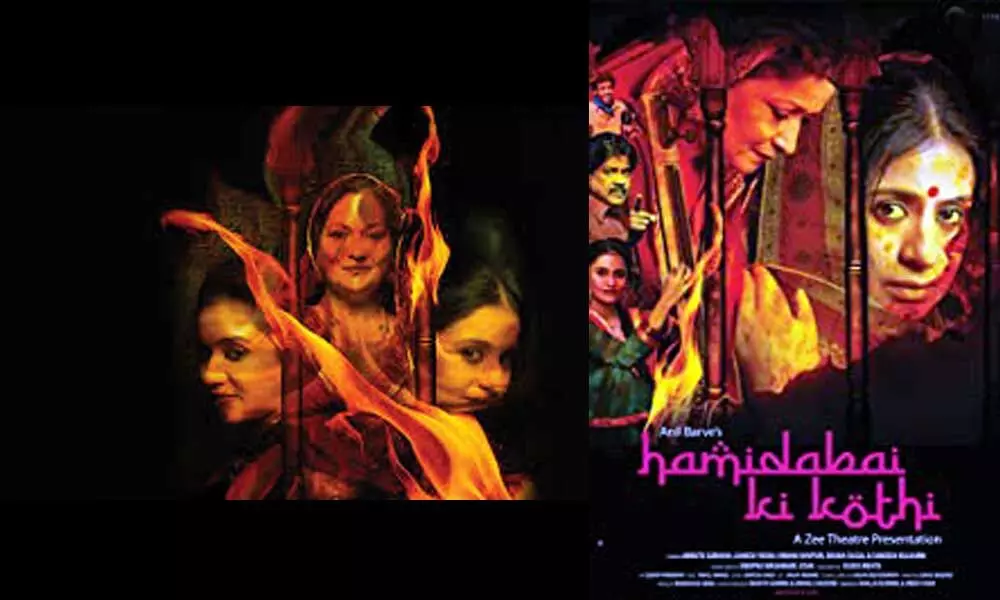 ‘Hamidabai ki Kothi’, now a teleplay on OTT
‘Hamidabai ki Kothi’, now a teleplay on OTT'Yeh Kothi dekh rahe hain, isme deewaren kam aur khidkiyan zyada hain' says the ageing Hamida Bai, who represents the vanishing culture of tawaifkhanas, the world of dance and music, of tradition and a unique set of principles.
'Yeh Kothi dekh rahe hain, isme deewaren kam aur khidkiyan zyada hain' says the ageing Hamida Bai, who represents the vanishing culture of tawaifkhanas, the world of dance and music, of tradition and a unique set of principles. Back in the time courtesans held mehfils reverberating with the sounds of sarangi and tabla, and the ghungroo, the bells that the tawaifs wore on their feet. Semiclassical and classical music, ghazals and thumris flourished in these homes; however, many legendary singers of the era remained in the memories and fables.
Such was their dedication and devotion to music that they felt it was sacrilege to even record their voice for a gramophone record. Some even thought they would lose their voice if they recorded it. Such were their lives of glory and irony that many may have been held in high esteem by rasiks; music lovers and the men who frequented the kothis, the affluent among them even forming out of marriage relationships with the women; but marriage or acceptance into the society was out of question.
The story of Hamida Bai
And, to this era, Hamida Bai belonged, a legendary singer, the protagonist of the legendary play 'Hamidabai ki Kothi', a proud matriarch of the kothi, who believes it is beneath the principles of a tawaif to sing or dance to film music. She bemoans the sad state when the girls for livelihood resort to selling their bodies and vouches that her house will never allow such digressions. She hates gramophone and calls it lifeless. What will be there after you if you do not record your voice, a journalist asks her. And she says, 'Memories. This voice and singing is given by God and will be there with me until my death; they will go with me." She says.
An icon of music, Khan Saheb supports her until death and is also father to her daughter Shabbo, whom he never acknowledges. Hamida Bai still holds him in reverence for his musical prowess. She tries to keep her daughter Shabnam away from her world in a hostel, and give her education, which too stops for want of money, and the latter is forced to live in the Kothi.
Poverty does not affect her beliefs or principles, and it is a continuous struggle to resist change and protect tradition, between right and wrong, and survival and ethics; a fight she passes on to her daughter; a fight which is not an easy one.
The Beginning
'Hamidabai ki Kothi' written by Anil Barve goes back to 1978. Vijaya Mehta directed and acted in the play that has since been staged a zillion times in Marathi and Hindi and has also been made into a film and a telefilm. She shares the true story that had inspired the playwright, during an interview to DNA - "Anil Barve (the writer) came to me with the concept. He had met a girl, Shabbo, on a train. Her mother was a traditional Kothi singer who had refused to teach her the dying art. Anil went to Mumbai in search of such a woman. Although he didn't find one, he came across interesting characters that became part of the play."
"I asked my mother-in-law, Durga Khote, about the era when the business of the kothis began to dwindle thanks to film music and records. She told me about a lady, Neelambai (a Kothi singer), whom she knew as the person who brought Nargis' mother into the film industry. To my surprise, this Neelambai turned out to be the same lady whose daughter Anil had met on the train. Anil named the lady Hamidabai and I decided to call the play Hamidabaichi Kothi. In the lead role would be the music, second lead the kothi, third character would be Hamidabai and then all the wacky characters from Anil's journey."
Back then, the play's cast included the likes of Bharati Achrekar, Ashok Saraf, Nana Patekar, Pradeep Velankar, Neena Kulkarni, Dilip Kolhatkar and Janardan Parab.
'Hamidabai ki Kothi' on OTT
What brings the iconic play into the present context is that it is now being telecast as a part of Zee Theatre initiative in the form of a teleplay with popular actor Himani Shivpuri in the role of Hamida Bai. One can watch the play on Zee 5 that features Amruta Subhash, Ganesh Yadav, Jitendra Jaiswal, Manuj Sharma, Rahul Kumar, Rasika Dugal and Sandesh Kulkarni in the cast. Directed by Swapna Waghmare Joshi along with Vijaya Mehta, the teleplay continues its reign now on the OTT platform, taking the audience back to a forgotten era; and also brings back the charm of teleplays; the nearest possible recreation of the live-theatre.
What is heartening, in addition to amazing performances is the set recreating the ethos of the original play, and the first lead – which is indeed – music – as Vijaya Mehta states; ghazals like 'Hamare baad ab mehfil mein afsane bayan honge' and 'Ye mana dil jise dhunde, Badi mushkil se milta hai' playing their part to perfection.

